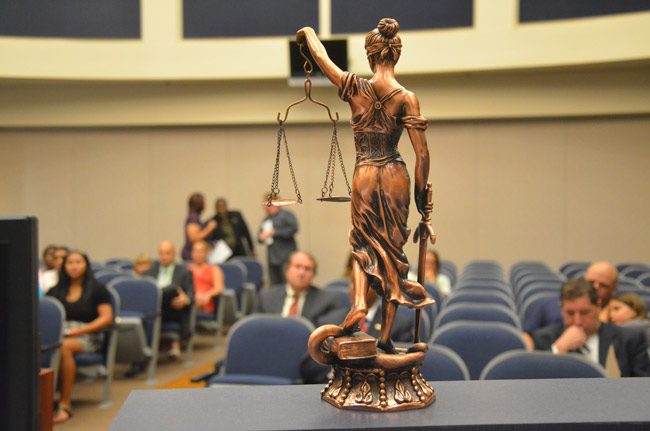
Despite opposition from an array of legal groups, a House panel Thursday backed a proposed constitutional amendment that would place term limits on Florida Supreme Court justices and state appeals-court judges.
House Speaker Richard Corcoran, R-Land O’ Lakes, is pushing the proposal, which would go on the 2018 ballot if it gets through the Legislature. The proposal would revamp a decades-old system in which Supreme Court justices and appeals-court judges do not face term limits — though they are required to go before voters every six years for merit-retention elections and face a mandatory retirement age of 70.
Rep. Jennifer Sullivan, a Mount Dora Republican who is sponsoring the measure (HJR 1), said the current system does not hold jurists accountable. She said no justice or appeals-court judge has ever lost a merit-retention vote.
“This bill is about good government and accountability,” Sullivan said before the House Civil Justice & Claims Subcommittee approved the proposal.
But the measure faces opposition from legal groups ranging from The Florida Bar to the Florida Justice Reform Institute, a business-aligned organization that has frequently disagreed with the state Supreme Court about civil legal issues. Opponents said, in part, that term limits would dissuade young attorneys from leaving private law practices for judgeships because those attorneys would eventually have to go back and try to rebuild practices.
“Bottom line, term limits are not going to ensure the best judges are on the bench,” said William Large, president of the Florida Justice Reform Institute. “Instead, they will only ensure that the best and brightest Florida lawyers rarely, if ever, apply.”
The proposal would prevent Supreme Court justices and appeals-court judges from seeking additional terms in merit-retention elections if they have already served 12 consecutive years in their positions. The House passed a similar proposal last year, but senators did not approve it.
Corcoran and other Republican leaders have been highly critical of the Supreme Court in recent years because of rulings that overturned legislative decisions.
But Rep. Sean Shaw, a Tampa Democrat who voted against the proposed constitutional amendment Thursday, said lawmakers disagreeing with court rulings is evidence that the constitutional separation of powers is working. Shaw also pointed to the experience of his father, the late Supreme Court Justice Leander Shaw, who had repeated merit-retention votes and “had to campaign vigorously.”
“I’m still not certain that there is a problem that we are addressing,” Shaw said.
Rep. Shawn Harrison, however, said the ultimate decision about term limits would be up to voters if lawmakers put the issue on the 2018 ballot.
“This is a proposed constitutional amendment,” said Harrison, a Tampa Republican and lawyer. “What we’re doing here today is not changing the rules. We are letting the people decide if this is what they want.”
–Jim Saunders, News Service of Florida





























Leave a Reply